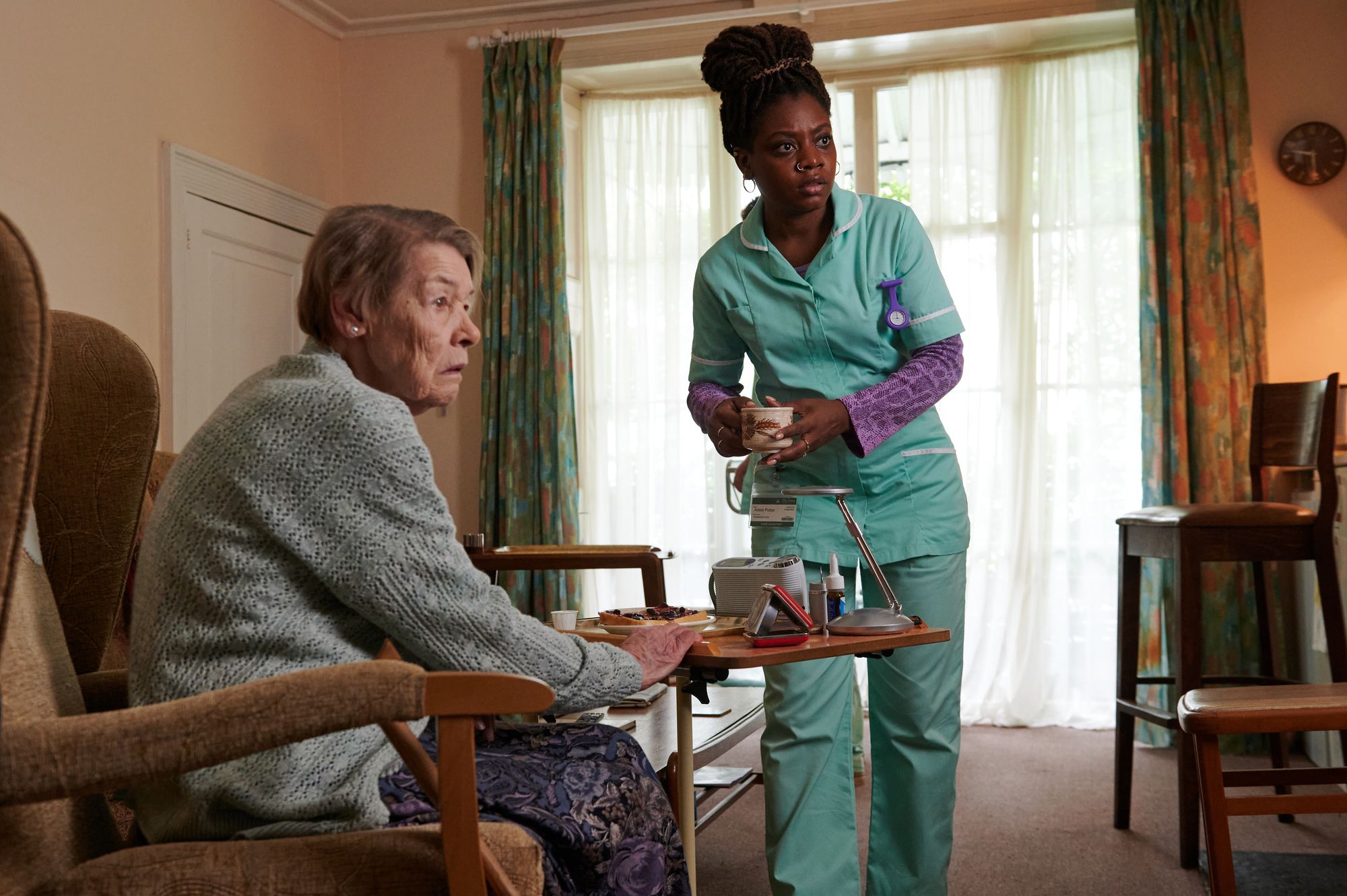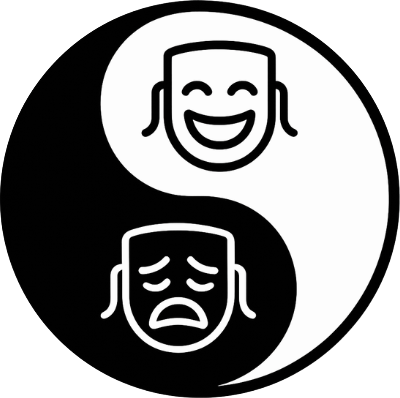Behind the Breakout: Danielle Vitalis
For most of us, one pop culture project to our name would be dope enough. Londoner Danielle Vitalis has several. If you didn't catch her in the sketch series Famalam, you likely would have in I May Destroy You or Black Mirror – an astounding resume for someone who didn't set out to become a screen star.
Soon, Danielle will be seen opposite Sir Michael Caine and Glenda Jackson (just casually) in The Great Escaper and as the lead in the upcoming Sky series Smothered.
Here we speak to Danielle about growing up in the Caribbean, her years spent between local hostels and big-budget sets, and how she's defining success today.

How did growing up in Saint Lucia shape the artist you are today?
Danielle Vitalis: Growing up in the Caribbean, it was so different. I moved to Hackney when I moved to London, and the difference between the two was so far apart. I was like, "Why are all the houses stuck together? Why are the cars parked in the road?".
In Saint Lucia, at school, I was the fast one. Everybody would call me the fast one. When I got to London, I realised there was a different perception of how you were viewed. People were like, "Oh, the black girl", or, "The new black girl", and I hadn't really experienced labelling in that way. So, I feel growing up in Saint Lucia allowed me to be free – to be what I wanted to be and do what I wanted to do without having to label it. I think I was lucky to have that.
Perhaps this is related, but you started acting relatively young. Can you tell us a little about what sparked this?
DV: I didn't really plan it, to be honest. I was studying performing arts, English literature, and print media, and I was really interested in journalism and thought that was what I was going to do.
Then something happened in my household, and I became homeless. I was 17. I ended up staying with a girl from a street dance class I took on Wednesdays. She said she was going to this open audition and I should come, and I was like, "Okay".
I got a part, and I was like, "Okay, this is fun", but I didn't think of it as something I'd take up. But then I got a part in another thing, and I was like, "Wait a minute". [So], it wasn't really ever a decision. I was just doing it. And I was doing it from loads of different hostels that I would get picked up from and taken to set. It was two very different worlds. But I managed it, you know?
Wow... Wow. So, given how this all played out, how have you become so skilled at your craft?
DV: I actually don't know. My dad was an actor, but to be fair, I didn't meet my dad until I was 17, and by then, I had already started acting. So, I think part of it is in the blood, and then I think because I didn't have any formal training, I had to learn everything on the job.
In the instances where I was living at the YMCA or some hostel, that was also like learning on the job and improvising – figuring out what you're going to do with nothing. I think it's all transferrable skills.
And [acting] was fun for me. It was exciting. It was an escape from where I was and what I was doing. And I feel like because it fuelled my fire so much and it made me so happy, I just took everything in. I continue to learn to this day on every job. I really love that. I really love learning new things. And I think you have to have a zest for continuing to learn.
On learning, you recently starred alongside two of the UK's most beloved actors in The Great Escaper. Undoubtedly, you learnt a shed tonne, but does anything in particular spring to mind?
DV: Is was interesting to watch Glenda [Jackson] – especially in interviews when people would ask her about the process of acting and all this. She was kind of like, "Just do it. It's not that deep". There was no faffing about with her.
I think that a lot of the time, people like to talk about all the other stuff. I'm very much like [Glenda] – just cut through the stuff and do the stuff and all the other stuff is okay. I liked that we got along in that way.
Do you have any hobbies, practices, or routines that help you ride out the rollercoaster our industry can be?
DV: This year, I've taken a long break. The last few years were quite intense, and I was just speaking yesterday about finding validation outside of work and what that looks like.
I started going to the gym, which is something I never ever thought I would do because, as you can see, I'm very sexy already. But I realised it's for the mind. It's not just for the body. I'm such an overthinker, and the gym helped me calm that down a bit.
I recently started selling stuff on Vinted, and that's a hobby I'm finding fun. The decluttering of stuff that I don't need is so peaceful and calming. I also have many plants – maybe 25 or something – in my apartment. And the practice of pruning them, looking after them, and ordering them is – scientifically – healing for you. It helps you look after yourself.
And I like cooking a lot. Cooking is very big for me. There's this girl on YouTube called Terri-Ann's Kitchen, and she's Saint Lucian and makes everything I've ever eaten.
How are you defining success for yourself these days?
DV: Success for me these days looks like getting up, trying my best, and going to bed. There are so many other definitions of it or perceptions of it – or even other people's ideas for my own success and what they think I should be doing or where I should be, and I just can't take it on.
I did a job last year that was quite difficult. It was very intense, very long days, it wasn't as organised as you'd expect... And I think it was one of the hardest things I've ever done. Coming out of that changed my whole perception of what I thought I wanted – what I thought success was. Because I was like, "Oh, this is a great part, it's a great story", and then it was so difficult. I was like, "Goddamn, I have to be careful with what I ask for!" because I asked for that, and it wasn't "it".
A lot of people think [acting] is everything. It's really not. Not in a bad way, but it's a job, you know? And I love it. But you also get other things like hyper-visibility and people feeling like they have access to you. Some people want the fame, but it's an occupational hazard sometimes. Not all the time, but sometimes. I think we need to be more clear about glamorising it in this way because it's just smoke and mirrors. It's fun, and I love it, and I'm so happy to do it. It's just, "All that glitters is not gold".
Big love to Danielle for her time. You can follow Danielle's journey on Instagram and Twitter. Wave hello and let her know you're a Dojo friend 👋
Thoughts / feedback / challenges for us? We'd genuinely love to hear.
